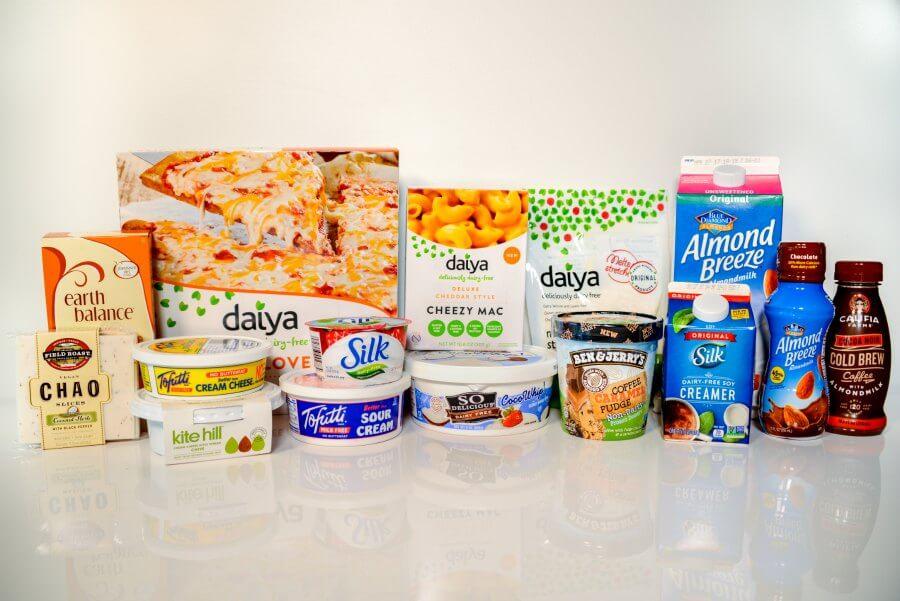The dairy alternatives market has an estimated value of $27.0 billion as of mid-2023, and it is projected to reach a value of $43.6 billion by 2028, according to a new report.

The report by MarksandMarkets predicts the dairy alternatives market will grow at a compound annual growthr ate of 10.1% between 2023 and 2028.
“Plant-based dairy alternatives offer a range of nutritional benefits that make them a popular choice for individuals seeking a healthier and more sustainable alternative to traditional dairy products”, note sthe report. “The consumption of plant-based dairy alternatives has seen a rise due to their nutritional advantages, which include lowered cholesterol levels, enhanced cardiovascular well-being, and improved diabetes management.”
The report says that “Numerous plant-based milk substitutes, including soy milk, almond milk, oat milk, and rice milk, boast lower fat and calorie content when compared to cow’s milk.”
In response to the growing demand for allergen-free choices, the dairy alternatives market has diversified its offerings to cater to diverse dietary requirements. This trend holds relevance for individuals with nut allergies, given that many traditional dairy alternatives are nut-based. Manufacturers are now introducing options derived from seeds, grains, and legumes, ensuring alternatives for those with nut allergies while maintaining nutritional value. Culinary innovation and flavor exploration have also gained prominence. Consumers no longer content themselves with plain, unflavored alternatives.
The flavored sub-segment in the formulation segment is estimated to grow at 10.4% during the forecasted period.
The report states that flavored milk alternatives are growing at a particularly fast past.
With advanced formulation techniques, manufacturers are able to closely resemble conventional dairy milk in both texture and flavor. Many people choose dairy alternatives because of lactose intolerance, milk allergies, or ethical reasons. They are often perceived as a healthier alternative to sugary dairy-based products. Manufacturers are increasingly offering low-sugar and fortified versions to cater to health-conscious consumers.
In addition, factors such as changing lifestyles, rising health consciousness, and changing eating habits are driving the flavored & unsweetened segment. The major reason for the acceptability of this category is that these products are extremely consumer-friendly, palatable, and low in sugar. Among other players, Blue Diamond Growers (US) offers unsweetened versions of dairy alternatives in vanilla and chocolate flavors.
Almond source is estimated to dominate the by source segment in the dairy alternatives market.
Almond-based products are “experiencing substantial demand within the dairy alternatives market due to their numerous advantageous qualities.” The growth of the almond-based dairy alternatives sector can be attributed to “factors such as its rich nutritional profile, the ready availability of raw materials, and its increasing popularity among consumers.”
The report states:
As consumers increasingly seek healthier options, almond milk, being naturally lactose-free and low in saturated fat and calories, aligns perfectly with their preferences. Furthermore, dietary constraints such as vegetarianism and lactose intolerance have increased demand for almond milk as a dairy-free substitute. It also accommodates people who are allergic to nuts, as allergenic proteins are normally eliminated during manufacture. Furthermore, increased environmental consciousness has prompted customers to prefer almond milk, which has a reduced carbon footprint and takes less water to produce. Almond milk’s pleasant flavor and adaptability in cooking have increased its appeal, making it a favorite ingredient in a variety of dishes. Within the dairy substitute industry, almond milk stands out as one of the most popular options, boosting innovation, expanding product lines, and appealing to a diverse consumer base.
Europe is estimated to grow at the fastest CAGR in the dairy alternatives market.
The European Union is one of the biggest dairy exporters in the world. Thus, conventional dairy has a huge share in the European market as compared to dairy alternatives. However, despite the dominance of the dairy sector in the region, “a surge in the growth of the dairy and plant-based alternatives sector has been observed in recent years. Many retailers and supermarket giants are adding soy drinks and rice drinks to their product shelves as they are witnessing an increase in sales of dairy alternatives.”
More information on this report can be found by clicking here.
